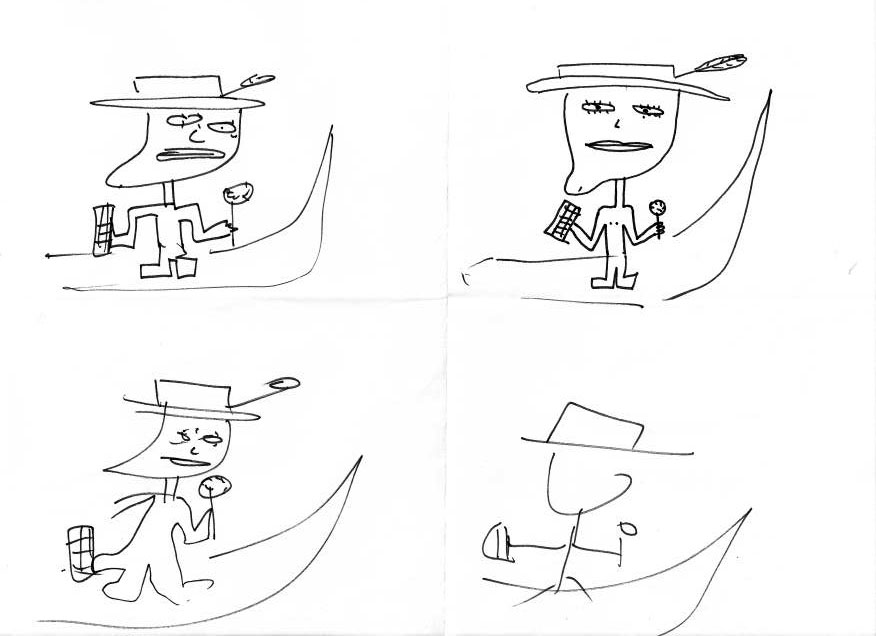“Hell, Yeah, You Can Draw!”
Reedies learn to embrace the cartoonist within at Paideia.
It’s a rainy Friday afternoon and Rose Driver ’19 is playing 90s house music while everyone in Vollum 126 sits furiously sketching Willy Wonka. This is Hell, Yeah, You Can Draw!, a class she led at Paideia last week.
In the first exercise, she asks the class to suggest an inanimate object and a popular character. After participants settle on a pair of subjects (this class chose Willy Wonka and an eggbeater) they draw each subject four times in a row. She gives them 60 seconds for their first sketch of an eggbeater, 30 for the second, 15 for the third, and a scant five seconds—five!—for the last. Then the process is repeated with Willy Wonka.
By now the table is covered in sheets of paper with increasingly simple and hurried depictions of a kitchen implement and a deranged confectioner. Over the course of four sketches, one student’s Wonka evolves from a jaunty fellow with a feather in his cap, dramatic lashes, and prominent nipples to a faceless stick-figure. His cleft chin makes a final appearance in the 15-second sketch as a sharp point, but only the chocolate bar and lollipop in his hands survive to the end. The essence of an eggbeater is revealed not to be the gears or crank, but the handle and whisks.
Next the students pass their sheets to the right and draw a four-panel comic that shows their favorite incoming Wonka interacting with the eggbeater. After that, students to break into groups and divvy up sketches and captions across several categories, reconvening to assemble the most amusing pairings they can find, creating single panel comics. In the final exercise, six illustrators collaborate to create a comic, one panel at a time.
At the heart of these exercises, says Rose, are drawing games from her upbringing in Seattle and the work of Ivan Brunetti and Lynda Barry. She explains that each game forces students to “give up artistic control and just sort of enjoy the moment of drawing.”
“Everyone has some idea of how to draw,” she says. “I think that most of the time when someone says they can’t draw, it’s not that they can’t draw, it’s that they think they can’t draw well.”
Rose wants her students to realize that “just because [a drawing] is ‘bad’ it’s not illegible—it’s all about communication.” Hell, Yeah, You Can Draw! isn’t a promise of potential, but an affirmation of fact.
Tags: Campus Life, Cool Projects
